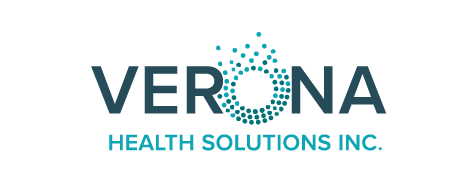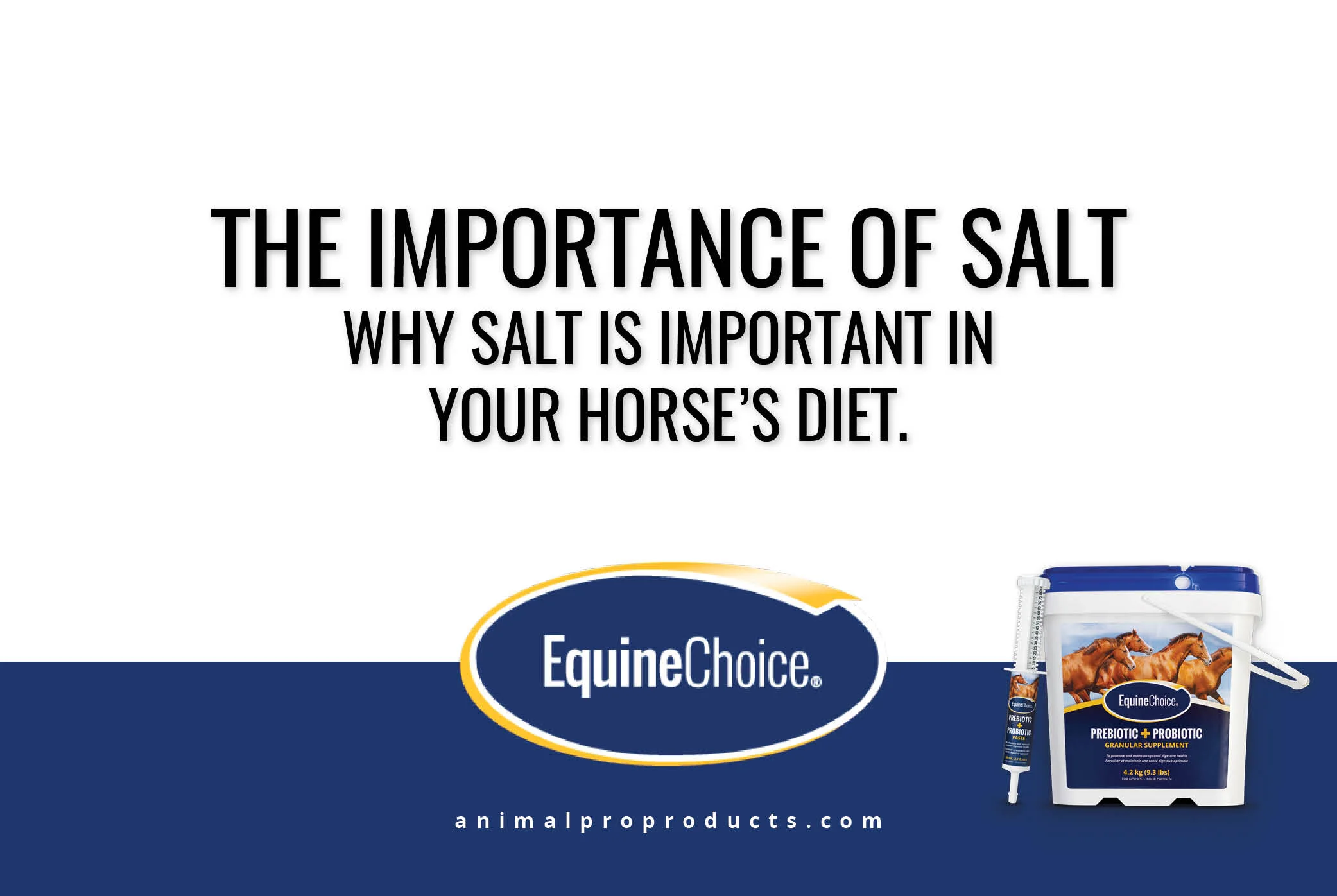The Importance of Salt: Why Salt is important in your horse’s diet.
Salt (NaCl) is made up of Sodium (Na) and Chlorine (Cl) and are important and sometimes overlooked minerals in a horse’s diet. Providing salt is more than just giving them a salt block.
Salt comes in many forms for your horse, from different types of blocks and loose salt. The best way to get salt into your horse is by using loose salt. Whether you give it to them free choice in a feeder or top dress on their feed it is simply a matter of management. Salt blocks are better than giving no salt, but your horse’s tongue is smooth and has a difficult time getting enough of their daily requirements from the block.
Horses require sodium in their diet for many functions from the nervous system and muscle function to facilitating the transport of nutrients across cell walls. Sodium and Chlorine come together to form common salt and have a close relationship along with potassium as they regulate body ph and blood pressure. If sodium levels are low in a horse, the body will hold onto sodium and release potassium creating an imbalance. Sodium deficiency also impedes protein and energy metabolism which can lead to weight loss and overall health decline over time.
Most commercial feeds and ration balancers contain added sodium (Na) but not at adequate levels. According to NRC 2007 guidelines horses require 10 grams of sodium and 40 grams of Chlorine per day (so around 2 tablespoons of common salt). Of course, horses in moderate to heavy work or in humid conditions will require higher levels, for example, horses in strenuous work such as racing can need up to 40 grams of sodium. Salt consumption in cold climates cannot be overlooked either since salt intake will drive water intake and help reduce the chances of impaction type colic. Horses can tolerate higher levels of salt if clean water is available as excess sodium is excreted in the urine. Horses without water or restricted access to water can suffer salt toxicity resulting in kidney damage, poor feed efficiency and electrolyte imbalance. Getting to know your sodium requirements starts by calculating your horse’s maintenance needs and then increasing based on the level of activity and humidity levels.
Horses on complete rations and vitamin/mineral balancers do not require trace mineral salt, this salt is the red block or red salt. Since those horses will receive enough trace mineral from their feed if they are fed to the tag specifications. To meet the sodium needs white loose salt intended for livestock use or white table salt (I prefer the coarse salt for horses) is all you will need. Top dressing ensures your horse gets the needed salt and prevents over consumption and possible waste and contamination of free choice salt in a feeder.
What about commercially available electrolytes? As stated above sodium is a major electrolyte needed by the horse. Other electrolytes such as potassium, magnesium, calcium and phosphorous to name a few all have roles to play in maintaining body functions. If your horse is sweating a lot due to strenuous exercise and humidity conditions, then electrolyte supplement is warranted but I would not use them daily just to maintain sodium needs. Giving oral electrolytes specifically paste electrolytes to dehydrated horses can cause stomach and abdominal discomfort as the paste will attach itself to the stomach wall while it is being dissolved possibly irritating the stomach lining.
Just like salt is important to the overall well being of your horse so is the absorption of nutrients and a healthy digestive system in maintaining body and immune function. The digestive system is broken into two parts, the fore gut where digestion is done by enzymes and the hind gut where digestion is done by bacteria. Salt (NaCl) plays a major role in the transport of nutrients across cell walls but first those nutrients must be able to digest properly. The use of digestive supplements containing enzymes, live yeast, probiotics and prebiotics will increase feed efficiency and optimize the digestion of nutrients as well as protect the digestive system from toxin overload that can cause damage to body systems. A well functioning digestive system allows sodium uptake along with other minerals thus creating a system that keeps the horse drinking and eating well leading to overall health benefits.
A final thought is to listen to your horses, as they will always be the best reflection of your efforts.
References: Frape, D. 2004 Equine Nutrition and Feeding 3rd E.
NRC 2007 Nutrient Guidelines for Horses 6th E.

